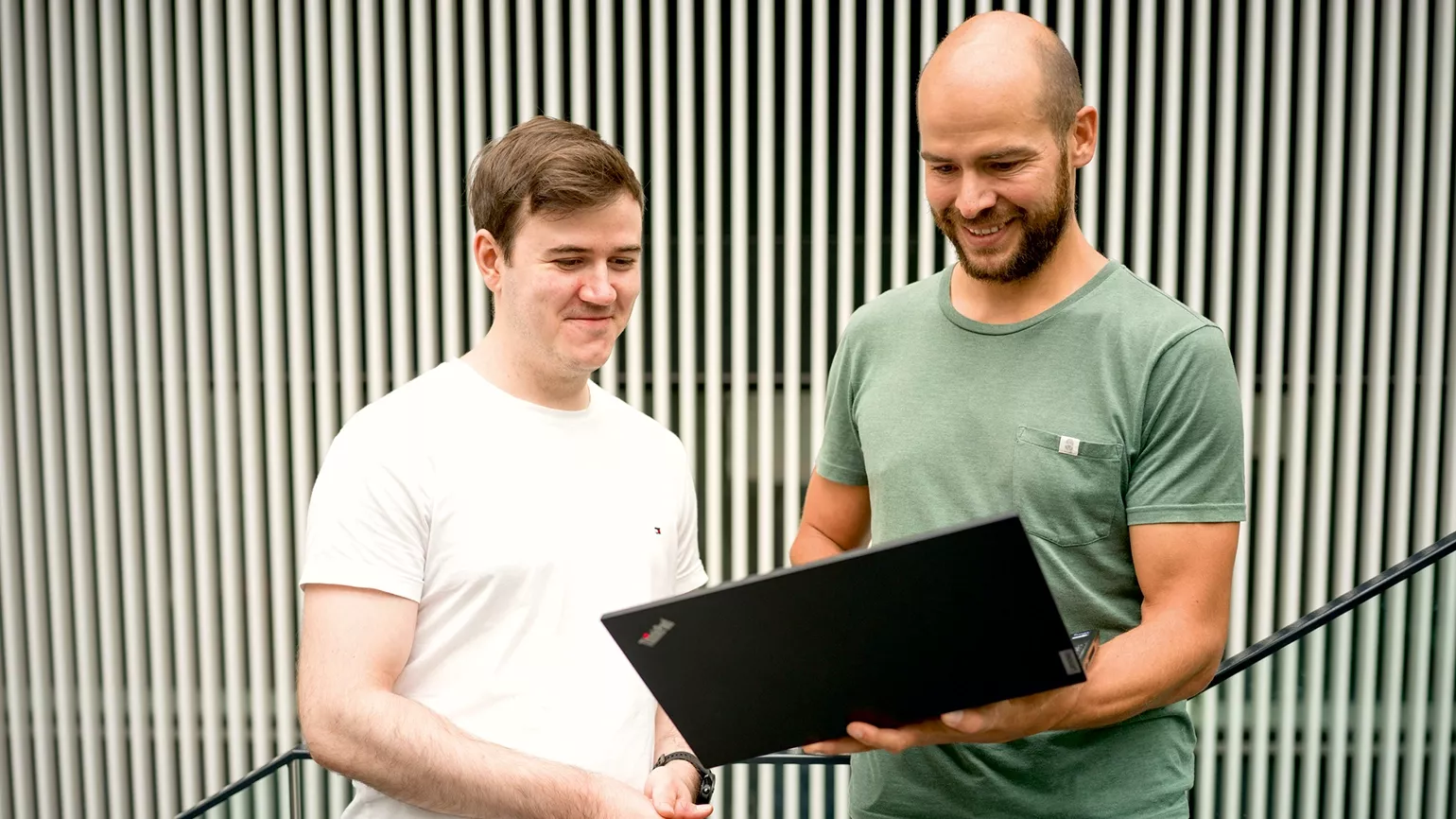André & Stefan's story
Software Developer (Cloud vs. Embedded)
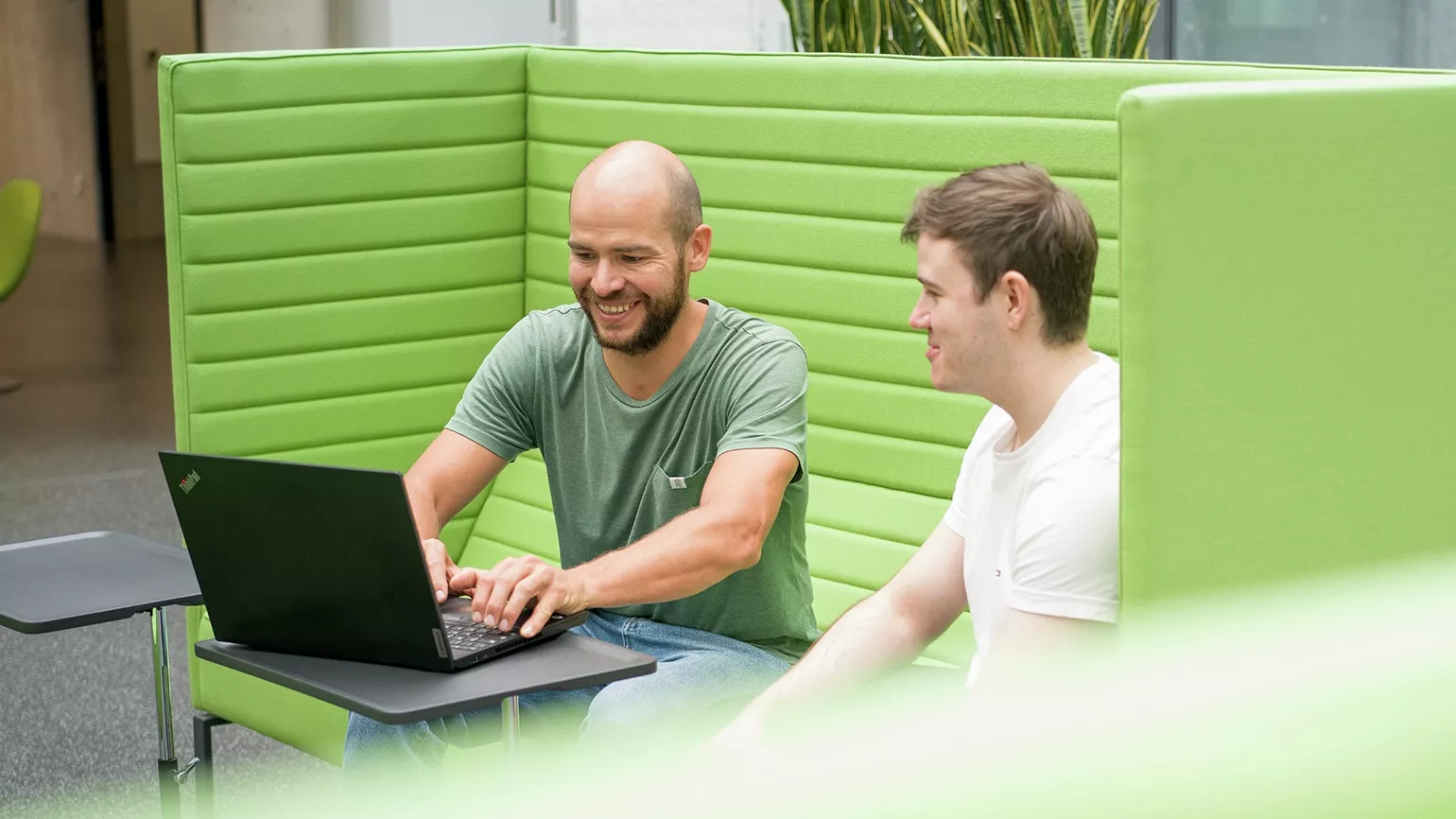
Bugfixes, the cloud & embedded systems
Hidden away in a tiny little cubicle, hunched over your keyboard in a forgotten corner of the office? At Fronius, you can forget the stereotypes. We see software development as a team endeavor and offer exactly the environment you need to succeed. Our bright and airy offices provide fertile ground for sharing ideas and inspiration.
In addition to the necessary technical expertise, our software developers bring two things to the table above all else: an open and communicative manner and a passion for solving problems as a team.
Learn more about the two worlds of software development
| Cloud | vs. | Embedded |
| Coding in systems | Coding on the device | |
| Software architecture and software design | Hardware-related software features |
|
| Large clusters, large data volumes |
Limited to one device | |
| For grid operators |
For end customers |
| Cloud | & | Embedded |
| If an error occurs… | … a bugfix must be created in both worlds. | |
| When a command is sent from the cloud to individual devices, … |
… the embedded developer must react to this. | |
| At the end of the day, both systems… |
… must communicate well with each other. |
Everyday working life
What does your day-to-day work entail?
Stefan: We typically work in the embedded area on new software features that the inverter should be able to offer in the future. We take a step-by-step approach based on the requirements and consider how this can be implemented in the code or on the hardware. We only integrate the new features into the software after successful testing.
André: I live in the cloud, as it were, and make sure that our inverters can be controlled by grid operators. As our appliances not only convert electricity but can also feed it into the grid, we need to implement dynamic export limits to ensure grid stability. In Australia, this must be remotely controllable, otherwise we will no longer be allowed to sell our inverters there.
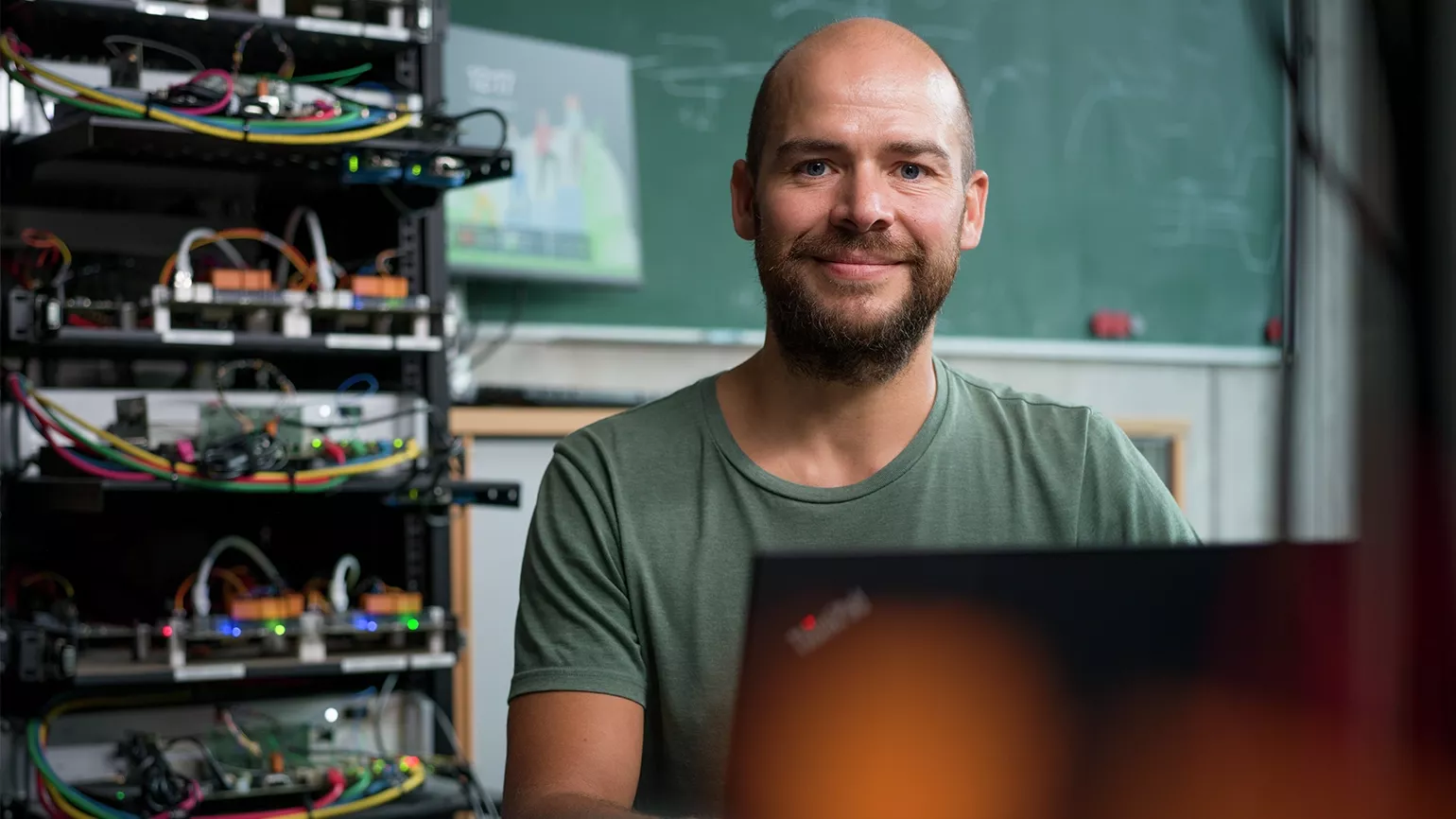
Troubleshooting
Which key combination or shortcut do you like to use the most?
Stefan: Probably the backspace key to delete my mistakes in the code!
André: This actually happens quite a lot, so I often use Ctrl+Z to undo major changes. You often have to rethink things and start again from scratch.
Stefan: And if an error occurs later, you then have to create a bugfix.
André: I really like solving these. If there’s a mistake somewhere in the code, you become both the detective and the culprit, investigating the story of your own crime. And then it’s incredibly satisfying when you find the bug and everything works again.
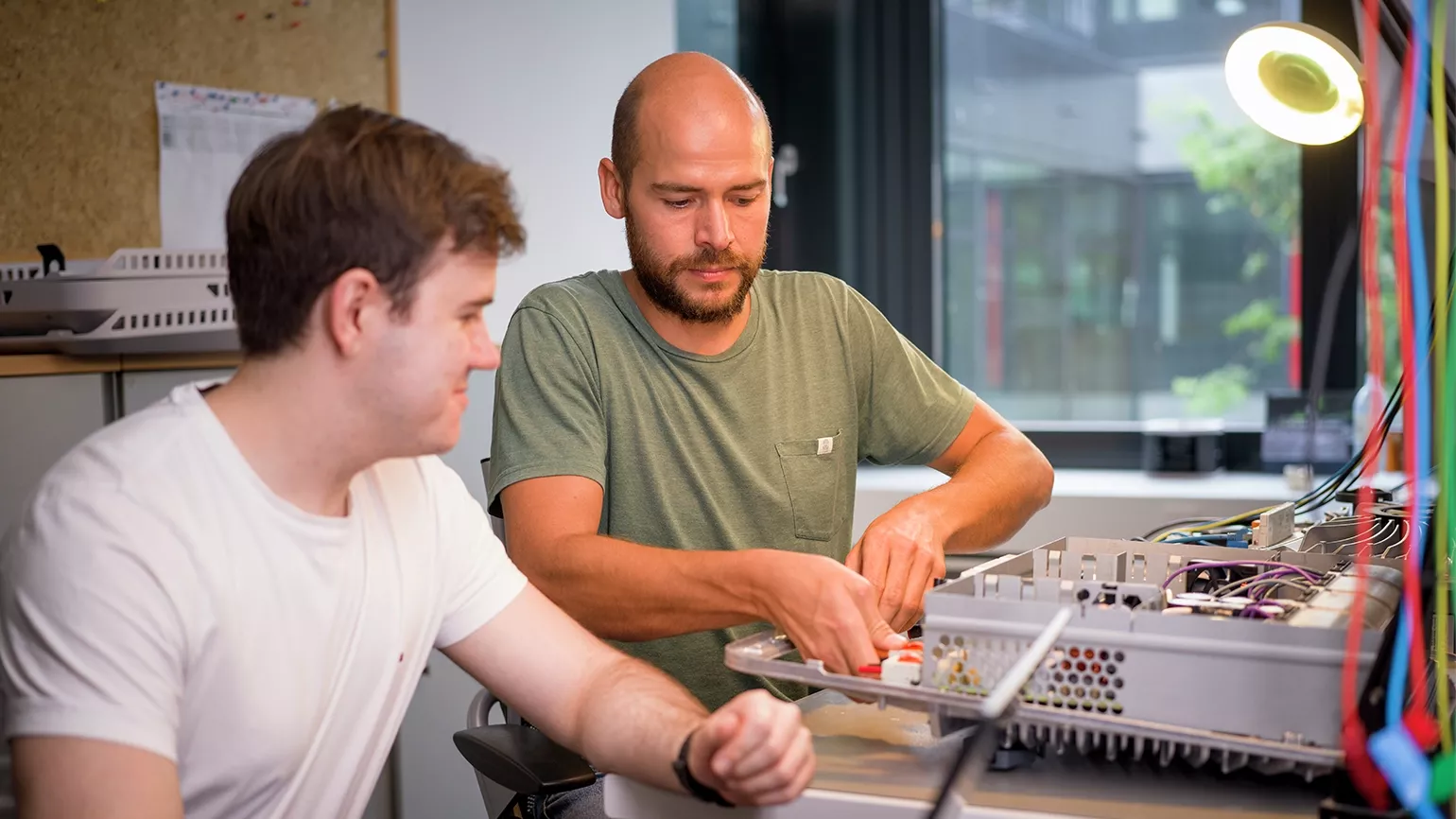
The potential benefits
Who benefits from your code?
André: Everyone. Our solutions are designed to maximize the potential benefit for our customers. With our code, for example, we ensure that electricity can be fed into the grid and therefore that the entire photovoltaic system pays for itself more quickly. It feels amazing that our work is part of a greater whole.
Stefan: Our code enables PV energy to be used efficiently and, in turn, lowers energy costs. We also offer our customers a high level of safety thanks to the backup power function.
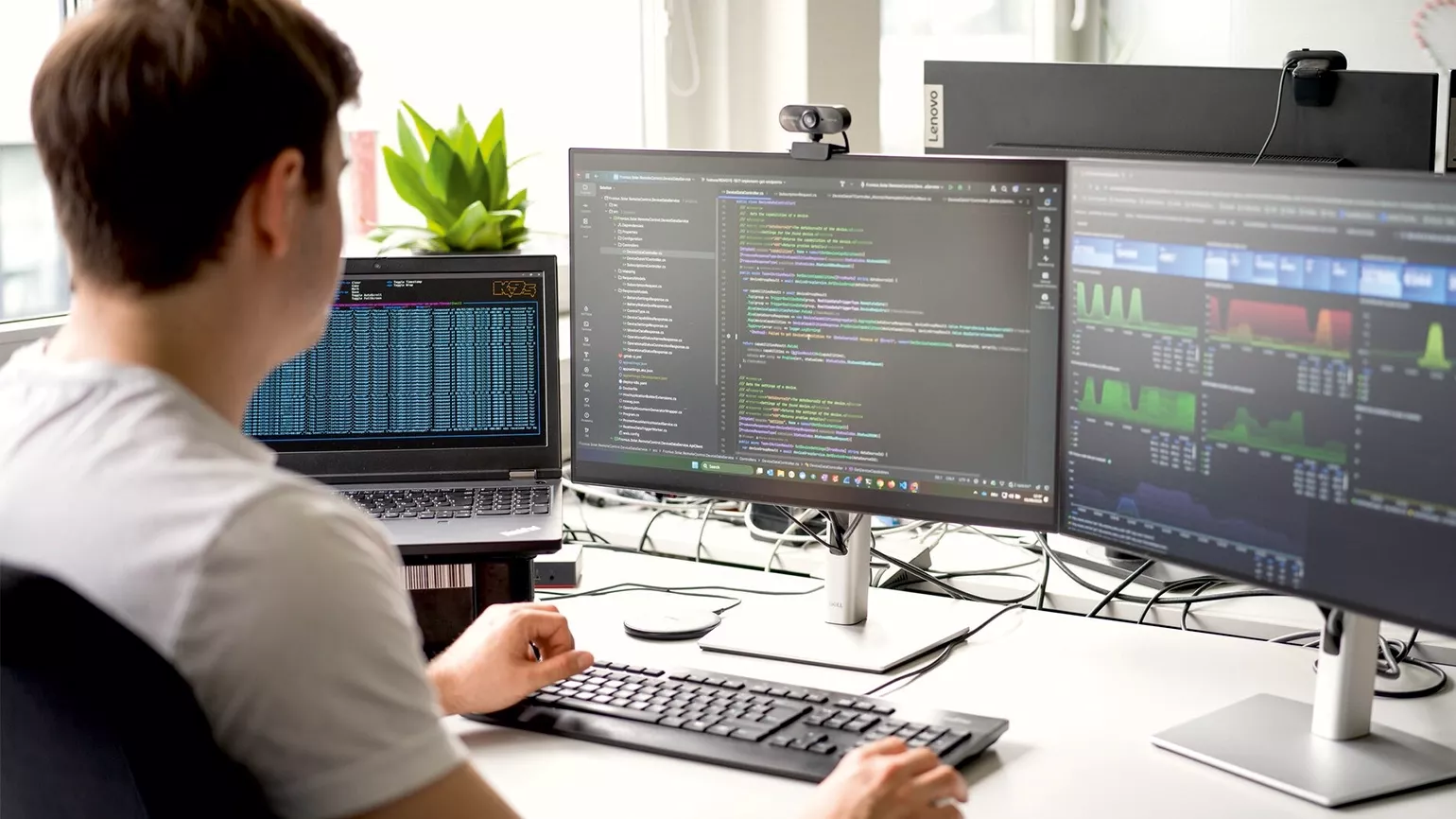
For Fronius
What skills does a software developer at Fronius need?
André: Software development often focuses on the time complexity and efficiency of an algorithm. But basically, it’s essential that you can communicate with other people. Most problems are due to communication, but communication is also the key to solving them.
What makes Fronius different?
André: There are not many companies of this size that are so serious about issues such as sustainability and sustainable profitability – and even fewer actively embody such good values. Young people seek jobs that are meaningful. At Fronius, you can contribute to the energy revolution while delivering long-term and sustainable added value. If this is important to you, you should definitely apply.
